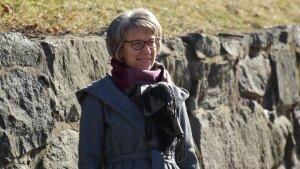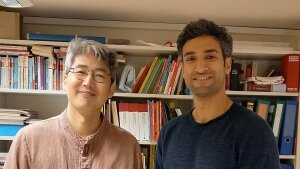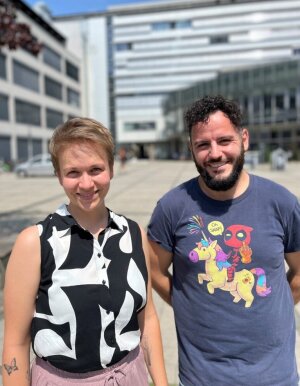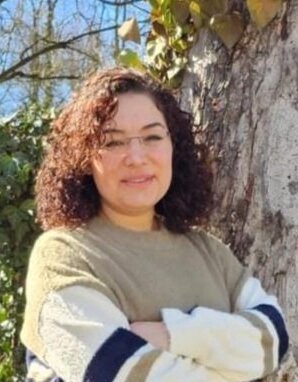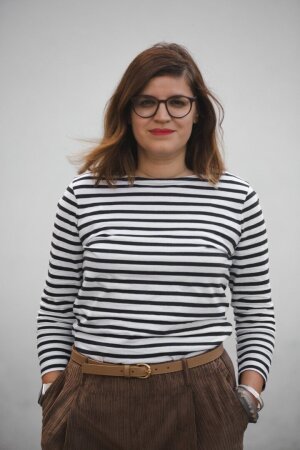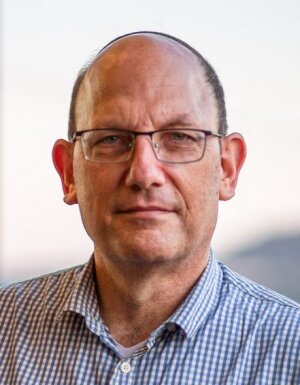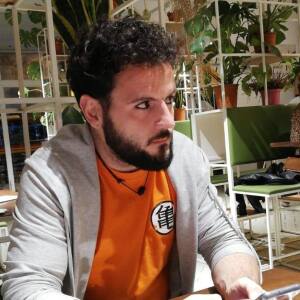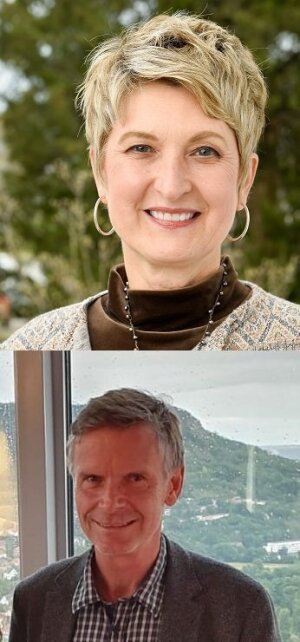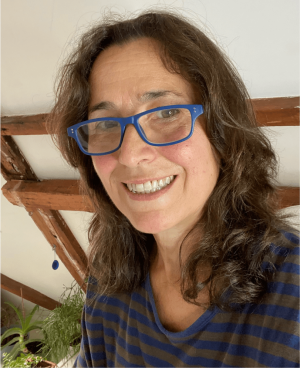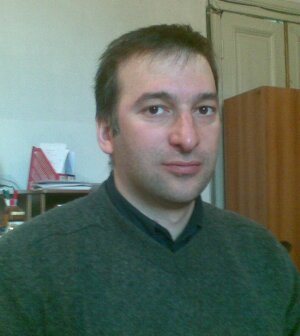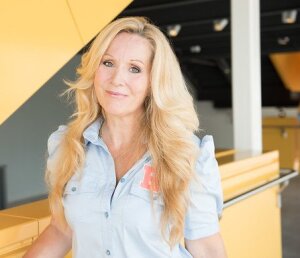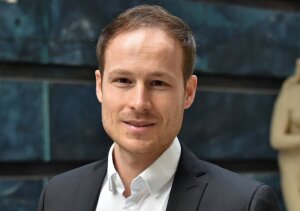
Talks for IDEAS
How can international exchange in teacher training be fostered, and how can intercultural diversity be experienced if students and instructors cannot travel?
What does it mean for young people to study together internationally - but without actually being able to spend time at the partner university, without experiencing the unknown atmosphere, without tasting the foreign cuisine, and without partying together? What if digital learning formats dominate everyday student life?
Based on these questions, we are hosting an international lecture series for students and academic staff from our six partner universities worldwide to enable international exchange about topics relevant for teacher training. With this offer, we hope to expand our circle and thereby address further German and international universities. The lecture series is open for different forms of academic and interdisciplinary exchange and includes, depending on the situation, both digital and hybrid formats.
We are delighted to announce that the following academics and their exciting contributions will be part of our presentation series.
Access to the Talks
https://uni-jena-de.zoom.us/j/63150900654External link
Meeting-ID: 631 5090 0654
Code: IDEAS
The talks will take place at 4.30 pm CET
If you are interested in attending any of our guest lectures, please contact ideas@uni-jena.de.
-
27.06.2024: “Engagement in Second Language Classrooms: What Can Be Done?”
Prof. Gabriel Michaud
Image: Gabriel MichaudProf. Gabriel Michaud, University of Montreal
As the result of a sharp increase in global displacement (OECD, 2021, UNHCR, 2023), the global landscape is seeing a commensurate increase in the need for language acquisition. Immigrants and new arrivals navigating their new homes face the dual task of resettlement and language acquisition. For understandable reasons stemming from myriad pressures and competing priorities, second language classes are often characterized by low participation, high dropout rates, and absenteeism (MIFI, 2021; Vérificatrice générale, 2017). Scholars emphasize that engagement is critical to overcoming barriers such as low achievement and motivation (Frederick et al., 2019; Mercer, 2019) and serves as the foundation for meaningful learning experiences (Svalberg, 2009; Mercer & Dörnyei, 2020) which is especially critical for successful second language acquisition efforts (Mercer & Dörnyei, 2020).
Despite educators' recognition of its importance, practical guidance for enhancing engagement remains scarce (Mercer & Dörnyei, 2020). The multifaceted nature of engagement underscores its complexity (Philp & Duchesne, 2016), leading to advocacy for its integration into task design and implementation. This presentation aims to provide educators with actionable strategies for fostering engagement, thereby cultivating vibrant and participatory learning environments conducive to language acquisition and success.
Biography:
Gabriel Michaud is an assistant professor of second language pedagogy at the University of Montreal’s Department of Didactics. He previously held a position as a lecturer at McGill University. With a specific focus on task-based engagement and the integration of form-focused instruction within Task-Based Language Teaching (TBLT), his research also examines the mediating effects of individual differences such as language aptitude and working memory, collaborative writing, and corrective feedback. He is the recipient of the 2020 Larry Vandergrift Award, presented by The Canadian Modern Language Review.
-
20.06.2024: "Linguistically Responsive Teaching: Enhancing Multilingual Students' Epistemological Access in Various Contexts"
Soili Norro
Image: Jemina NorroSoili Norro, University of Turku
An increasing number of students worldwide face the challenge of receiving their basic education in a language other than the one(s) spoken at home. It has been estimated that even forty per cent of the world’s population do not have access to education in a language that they understand. The challenges are similar in both postcolonial school systems, where the language of instruction is often an ex-colonial, exogenous language, and in various contexts created by international mobility such as immigration. The high valuation of the school language may entail denigration of multilingual students’ home languages and thus affect their linguistic and cultural identities.
Teachers’ beliefs are an important aspect in language policy implementation, as they finally decide which languages are used in the classroom. Their beliefs reveal and reflect the language ideologies prevalent in the society and guide their pedagogical practices. In the lecture, I use the data and analysis of my doctoral dissertation to shed light on teachers’ beliefs and practices in the context of Namibia especially.
I also focus on pedagogical practices that will enhance multilingual students’ learning. I use linguistically responsive teaching as an umbrella term for different pedagogies, such as translanguaging pedagogy, and give examples of successful programmes supporting multilingual students’ epistemological access and the construction of their multilingual identities.
Biography:
Soili Norro is a teacher of English and French in Rauma Teacher Training School (Finland). She obtained her PhD in Applied Linguistics from the University of Turku in May 2023. Her doctoral dissertation focused on Namibian primary school teachers’ beliefs and practices and the language ideologies underlying them. She has also worked as a missionary in Cameroon for several years.
-
01.02.2024 "Mögliche Welten (in) der afrikanischen Diaspora: Menschenrechtsbildung im Fremdsprachenunterricht"
Katalin Schober
Image: K. SchoberJun.-Prof. Katalin Schober, University of Constance
Sowohl anglophone als auch frankophone Autor*innen der afrikanischen Diaspora sind mit ihren Werken derzeit außerordentlich erfolgreich. Ihre literarischen Entwürfe, die den Strömungen des Afropolitanism (z.B. Chimamanda Ngozi Adichie, Yaa Gyasi) bzw. der migritude (z.B. Aminata Sow Fall, Koffi Kwahulé, Beata Umubyeyi Mairesse oder Fatou Diome) zugeordnet werden können, imaginieren mögliche Welten. Sie verhandeln in diesem Zuge mehrkulturelle Identitäten sowie universelle ethische Fragen nach dem guten Leben, ohne dabei auf einfache Antworten zu setzen. In diesem Sinne eignen sie sich, um Lernende moderner Sprachen für Fragen der Menschenrechte zu sensibilisieren, und um Werturteile Schritt für Schritt zu entwickeln. In einem Vortrag sollen ästhetische Muster ausgesuchter Werke und Strategien für ihren Einsatz im Unterricht im Sinne einer Menschenrechtsbildung diskutiert werden.
Biography:
Katalin Schober arbeitet seit 2020 als Juniorprofessorin für die Fachdidaktik der Fremdsprachen an der Universität Konstanz. Nach ihrer Promotion in der englischen Literatur und Kultur an der Humboldt-Universität zu Berlin unterrichtete sie die Fächer Englisch und Französisch an Gymnasien im Land Brandenburg. Ihre aktuellen Arbeitsschwerpunkte liegen vor allem in den Bereichen der Literatur-, Medien- und Kulturdidaktik und fokussieren Fragen der Transkulturalität, der Bildung für nachhaltige Entwicklung und der Bildung für Menschenrechte in literarisch-ästhetischer Vermittlung.
-
01.12.2023 In-person workshop: "Gender, queer, Diversity - immer noch ein Thema für die Schule! Diversitätskompetenz in Theorie und Praxis"
Dr. Charlotte Kaiser und Antonio Lérida Muñoz
Image: privatCharlotte Kaiser, University of Jena and Antonio Lérida Muñoz, Universidad Pablo de Olavide (Sevilla)
This workshop will take place between 10.00- 14.00 h.
The room will be announced.
Die sozialen Medien, politische Debatten und zahlreiche Demonstrationen wie die CSDs jeden Sommer beweisen es: Vielfalt ist mittlerweile ein selbstverständlicher Bestandteil unserer Lebenswelt. Dennoch fühlen sich viele Personen von „Diversity“ überfordert, haben das Gefühl, den Anschluss verloren zu haben und sind unsicher, wie sie mit dieser „neuen“ Vielfalt umgehen sollen. Gleichzeitig erleben Menschen, die nicht der gesellschaftlichen Norm, insbesondere der Cis-Heteronormativität, entsprechen, weiterhin Diskriminierung – nicht nur, aber auch in der Schule. Eine Umfrage der European Union Agency for Fundamental Rights hat herausgefunden, dass 62% aller queeren Personen, ihre Identität im schulischen Kontext verstecken, nur 5% gehen offen mit ihrer Identität um. Auch im Bereich der Unterrichtsthemen werden queere Lebensrealitäten in nur 23% der Fälle überhaupt thematisiert, in nur 4% in positiver Art und Weise. Diese Zahlen sind beunruhigend, besonders mit dem Wissen, dass 42% der queeren Personen sich ihrer Identität im Schulalter (10-14 Jahre) bewusstwerden. Diese und andere Statistiken zeigen also: der Umgang mit Vielfalt muss weiter erlernt und geübt werden.
In unserem Workshop wollen wir theoretisches Wissen zu den Themen Diversität, Diskriminierungsdimensionen und Intersektionalität sowie praktische Strategien für die unterrichtliche und schulische Interaktion vermitteln. Diversitykompetenz als Schlüsselkompetenz bezeichnet einen wertschätzenden und antidiskriminierenden Umgang mit Vielfalt. Auch und besonders in Bildungskontexten ist Diversitykompetenz bedeutsam: Es geht um das Erkennen und Vermeiden von diskriminierendem Verhalten und um Interventionsmöglichkeiten. Nach unserem Workshop werden die Teilnehmenden über grundlegendes Wissen und Strategien verfügen, die sie im Umgang mit Diversität innerhalb und außerhalb der Schule anwenden können.
-
02.11.2023 "Language Diversity in the Classroom: Teaching English in a Multilingual Classroom"
Linda Gerisch
Image: L. GerischLinda Gerisch, Norway University of Applied Sciences
The relationship between applied linguistics and language teaching practices in the classroom has always been a difficult one. This talk is the result of a research project aimed at brining the two closer together. My research focuses on the acquisition of English constructions in a classroom setting. The first part of my project is based on data from three German schools.
Furthermore, this talk is going to discuss the development that students are becoming more and more diverse, among other things, due to geopolitical developments. Consequently, language teachers need strategies for teaching students with diverse language backgrounds. Students with first languages that differ from the majority language in the school face unique challenges in all subjects, but in particular in foreign language teaching. Teachers should be able to allow their students to integrate their L1 in the learning experience and view multilingualism as an asset while supporting learners in their acquisition of the target language.
Biography:
Linda Gerisch is a PhD student at Inland Norway University of Applied Sciences - a teacher training university in Norway. She got her first „Staatsexamen“ from FSU Jena in English and Religious Education. Her PhD project is part of a PhD programme called PROFF (Professional Focus on Teacher Education) and the research group English Language in Use
-
25.05.2023 "The Role of Teacher´s Beliefs in Creating Inclusive Learning Environments"
Zeynep Dincer
Image: privatDr. Zeynep Ölçü Dinçer - Hakkari University, Turkey
It has been substantiated by scholars that teachers’ tacit beliefs have a considerable effect on their emotions, decisions and practices in the classroom. These beliefs affect not only teachers’ instructional choices but also the way that they ensure equity and democracy in the classroom and create a welcoming atmosphere for the learners. As these beliefs are not on the surface and cannot be identified easily, teachers may not recognize this impact during the on-going teaching process. Therefore, it is important to raise teachers’ awareness to this issue through reflective practice. By doing so, they can eliminate the potential negative effects of the preoccupied malleable beliefs and create an inclusive learning environment by means of the newly developed belief systems. These reflective practices can be useful for both pre-service and in-service teachers. In this lecture, first the theoretical constructs of teacher beliefs will be presented, so that the audience will get insight into the nature of beliefs and their relation with emotions and behaviors. Then, classroom experiences that support or undermine the construction of inclusive learning environments will be revisited through the lenses of reflective practice in order to evidence the mutual relationship between teachers’ beliefs and actions.
-
20.04.2023 "Diskriminierungskritischer Umgang mit Bildungsmedien"
Janina Vernal Schmidt
Image: Isabel C. LohrengelDr. Janina Vernal Schmidt, Universität Hildesheim
Zahlreiche Studien zeigen, dass diskriminierende und rassismusrelevante Inhalte Schulbücher von der Grundschule auf durchziehen und sich somit folgenschwer auf den Unterricht sowie adressierte Schüler:innen und Lehrpersonen auswirken. Aber auch vermeintlich diversitätssensibel gestaltetes Unterrichtsmaterial hält nicht immer, was es verspricht. Welche Identitäten, Lebenswelten und Erfahrungen sind in unseren Bildungsmedien sichtbar? Wie können wir diversitätssensibles Material erkennen und auswählen? Wie können wir auch mit „schlechtem“ Material guten Unterricht ermöglichen?
-
02.02.2023 "Bildungsaufgabe in einer Migrationsgesellschaft: Kultur- und Religionssensible Bildung"
-
19.01.2023 "From Rejection to Identification: Holocaust Education in Israel (1950s-2020s)"
Dan Porat
Image: Ma'ayan PoratDr. Dan Porat, Hebrew University of Jerusalem
After the deceleration of independence of the State of Israel in 1948, thousands of Holocaust survivors arrived in the newly established country. When they arrived in Israel, however, locals did not want to hear about their trauma or learn about their suffering. In Israel's education system, the Holocaust was an unwelcome topic. It was only after the 1967 Six Day War that a gradual change in the treatment of the Holocaust in Israel’s education system began, a change that culminated with Israelis today viewing the Holocaust as a cornerstone in their national identity, an event that they believe cannot and should not be compared to any other kind of Genocide. The lecture will discuss the reasons behind the changing attitudes in Israeli society and the education system toward the memory of the Holocaust.
-
24.11.2022 "Gender, queer, Diversity – ein Thema für die Schule! Ideen für die Gestaltung eines diversitätssensiblen (Fremdsprachen-)Unterrichts"
-
30.06.2022 "Addressing Racism in English Language Education – Challenges, Principles, and some Practical Examples"
Dr. Silke Braselmann
Image: Anne Günther (University of Jena)Dr. Silke Braselmann, Friedrich-Schiller-Universität Jena
Ever since the Black Lives Matter movement gained new momentum in June 2020, racism has become an increasingly important topic for young adults all over the world: As (mostly younger) people in Berlin, London or Vienna protested the murder of George Floyd alongside the racist attacks and police brutality in their own countries, racism became an integral part of the European discourse on racism. This transcultural and globalized dynamic calls for implementation in English language teaching – with English as lingua franca of the global anti-racism movements and the US as a major point of reference in the discourse, English language teaching (ELT) offers many starting points for critical, self-reflexive and engaged debates and for establishing an anti-racist teaching practice. However, classroom realities differ widely – and so do perspectives on racism. While some learners (and teachers) may encounter racism in their everyday lives, others will not share these experiences or may not be aware of these realities at all. Yet, in order to dismantle racism, one needs to be able to identify and describe it.
This talk focuses on the ways in which English language education can counter racism by addressing it - especially in predominantly white classrooms. Based on a theoretical framework that draws on Critical Race Theory and Critical Whiteness Pedagogy, the talk outlines some of the main aspects and challenges that may arise when racism is addressed in the EFL classroom and offers some ideas and practical examples. By suggesting heuristic principles as well as teaching materials and activities, the talk engages in the ongoing debate about the value and necessity of critical, engaged, and oftentimes uncomfortable teaching practices that actively counter racism – in the classroom and beyond.
-
12.05.2022 "Teaching the Climate Crisis in a Transatlantic Online Course: Concepts, Activities and Practical Insights"
Hedy Fraunhofer & Laurenz Volkmann
Image: privatProf. Dr. Laurenz Volkmann, Friedrich-Schiller-Universität Jena & Prof. Dr. Hedy Fraunhofer, Georgia College and State University, USA
As wildfires, droughts, a global pandemic, rising sea levels, warming ocean waters and increasingly frequent and violent storms have recently shown, climate change is a topic of imminent urgency. It is a convergence of plural crises that in the coming decades will require all hands on deck, i.e. the cooperation of myriad fields of expertise rather than thinking in traditional disciplinary silos.
The two instructors of this transatlantic online course will describe how they conceptualized a post-disciplinary, integrative conversation linking the science of climate change, philosophy, cultural, media, and film studies, literary studies, French, Spanish, and English studies, pedagogy and teacher
education, eco-criticism and eco-pedagogy. Offered jointly by the FSU Jena and a university in the U.S., the binational course, “Climate Crisis: Teaching Philosophy and Fiction at the End of the World,” took place in the summer term of 2021 and is being taught again this semester.In our presentation we will describe the basic outline of the course with its outcomes, the materials used – from secondary literature to commercials, films, novels, and bandes dessinées – and the course schedule. We will present some outstanding student contributions as well as provide ideas for similar course formats.
-
27.01.2021 "Interactional Approaches to Intercultural Communication: What pedagogical Implications can be drawn to improve Teacher's Competences"
Marta Fernández Villanueva Jane
Image: Marta Fernández Villanueva JaneProf. Dr. Marta Fernández-Villanueva Jané, Universitat de Barcelona, Spain
From the intercultural studies perspective, we assume that interacting successfully with people from different cultures involves specific knowledge, skills and attitudes.
However, most of them can be merely related to a successful communicative usage, since communication does not just involve successfully “transmission of information” but also involves appropriate “management of social relations”. In this extended conception of communication, socialization is therefore at the same time a central function and an emergent effect of communication: People's usage of language influences clearly interpersonal reactions and relations. For this reason communicative choices that fail are rarely repeated, and the successful ones shape regularities, patterns and conventions revealing shared underlying values, roles and expectations in the community of speech, which are projected, negotiated and ratified in the communicative interaction.
We know that different cultures have different conventions regarding what behaviour is expected in what contexts, but we cannot directly apply cultural “does and don’ts” in any interactional context, they need a fine tuning according to the specific communicative event, the specific communicative objectives and the expected social roles at play. Interactional sociolinguistics research specifically that “play”: how we dynamically adjust our behaviour in communication identifying and co-ordinating some multimodal hints about values and expectations of relevant roles and behaviour . Merged with intercultural pragmatic approaches, it offers a powerful theoretical and methodological research frame and improves our understanding of intercultural competence.
How can intercultural competence be meaningfully observed and analyzed in specific intercultural interactions in Higher Education? How can this be transferred into classroom practices? To address these questions I will first present the assumptions of Interactional Linguistics, then show some examples of how interactional encounters in Higher Education can be analyzed from these interactional approaches using natural occurring interaction observation, analysis of cultural artifacts or of elicited Critical Incidents, and finalize with some remarks and pedagogical implications to be discussed.
Academic matching partner at the Uni Jena: Dr. Luisa ContiExternal link
-
13.01.2021 „Tbilisi – die Stadt der Kontraste: Pädagogische Herausforderungen einer historisch gewachsenen multikulturellen Metropole am Beispiel der deutschen Minderheit in Georgien“
Iwa Mindadze
Image: Iwa MindadzeProf. Dr. Iwa Mindadze, Ivane Javakhishvili Tbilisi State University, Georgia
„Tiflis versank aber nicht, es blieb, was es war: die glänzende Märchenstadt, die freudige, luftige, singende, tanzende, trinkende und schmausende Hauptstadt des Rebenlandes Georgien, in der Westen und Osten aufeinanderstoßen. Paris und Babylon an einer Stelle vereinigt – Paris des Orients und Babylon des Westens.“ So sah die Stadt am Anfang des 20. Jahrhunderts zu Zeiten von Essad Bey aus, eigentlich Lev Nussimbaum, der seine Werke auch unter dem anderen Pseudonym – Kurban Said – veröffentlicht hatte. Tbilisi, die Stadt, in der die einzigartige Vermischung von Nationen, Stilen und Lebensweisen vorkommt, ist gleichzeitig eine Großstadt in einem kleinen Land, mit Wirtschaftsnot und mit dem wirbelnden politischen und gesellschaftlichen Leben.
Nicht weniger bunt war die pädagogische Landschaft Georgiens, damals ein Teil des russischen Reiches. Der Fokus der Veranstaltung richtet sich auf die Frage welche Auswirkungen die politischen Ereignisse zu Beginn des 20. Jahrhunderts auf das Bildungswesen der Minderheiten hatten. Am Beispiel der deutschen Kolonie in Georgien wird gezeigt, wie diese Diversität die Bildungsszene Georgiens geprägt hat.
Akademische Matching-Partnerin an der Uni Jena: Dr. Eva Schmucker-DrabeExternal link
-
16.12.2021 "Native and International Cultures: The Diversity of Heterogeneous Classrooms"
Elena Markova
Image: Elena MarkovaProf. Dr. Elena Markova, Higher School of Economics, Moscow, Russia
During the session the following issues will be discussed:
- Intercultural similarities and differences,
- Intrapersonal peculiarities within interpersonal communication,
- Various ways of student-teacher’s interaction.
The first issue will deal with the notions of national, target, international cultures. We’ll speak of students’ ethnic cultures within the culture of the country.
As for the second issue we’ll speak about the variety of possible intrapersonal differences in levels of proficiency, multiple intelligences, psychological types and preferences and so on.
The third issue will deal with interaction between students within the classroom and the teacher, that are different forms of group work and group cooperation, project-based learning, discussions and debates and similar.
Academic matching partner at the Uni Jena: Dr. Silke Braselmann
-
02.12.2021 "Dissonant Pedagogies, Decolonial Practices: 'Glocal' Fictions of Diversity in the Era of Climate Change"
Heike Härting
Image: Amélie Philibert, Université de MontréalProf. Dr. Heike Härting, Université de Montréal, Canada
The lecture “Dissonant Pedagogies, Decolonial Practices: “‘Glocal’ Fictions of Diversity in the Era of the Planetary” critically examines a range of past and present discourses of diversity. Drawing from the Research Council of Canada’s report on diversity, Igniting Change (2021), David Chariandy’s Canadian Caribbean novel Brother (2017), and indigenous hip hop songs, it argues that diversity is not reducible to a moral or ethical obligation but requires decolonial reading practices to redefine plurality and rethink identity in relational and decolonial terms. Such reading practices are “reparative” (Sedgewick) and underscore the importance of “glocal fictions,” namely, literary and non-literary narratives of planetary change that are anchored in local experiences but not confined to them. They compel teachers and students to unpack different configurations of whiteness and systemic racism. Accompanying the lecture, the online workshop “Hip Hopping Diversity, Multi-Media Pedagogies, and Indigenous Future Imaginaries” introduces participants to different indigenous hip hop videos and digital art installations. It explores the possibilities of online multi-media pedagogies and offers prompts and break-out room discussions to think creatively about emerging solidarities across different cultural communities. The workshop invites participants to compose a collective crowd-sourced poem on diversity.
Academic matching partner at the Uni Jena: Prof. Dr. Caroline Rosenthal
-
18.11.2021 "IDEAS para fomentar la diversidad lingüística en el aprendizaje de una lengua etranjera"
Lukas Eibensteiner
Image: Anne Günther (University of Jena)Jun.-Prof. Dr. Lukas Eibensteiner, Friedrich-Schiller-Universität Jena, Germany
En la comunicación "IDEAS para fomentar la diversidad lingüística en el aprendizaje de una lengua extranjera" analizaremos el potencial de los medios digitales para fomentar la diversidad lingüística (tanto en lenguas de herencia, como en lenguas minoritarias o regionales) en el aula de lenguas extranjeras. Para ello, mostraremos, en primer lugar, las funcionalidades de algunas herramientas informáticas, como Google Maps, para visitar de manera virtual un país extranjero. Asimismo, exploraremos las posibilidades que ofrecen estos recursos para observar el paisaje lingüístico de una región plurilingüe (como, por ejemplo, Barcelona o Valencia). En segundo lugar, analizaremos el paisaje lingüístico de algunas ciudades alemanas utilizando otras aplicaciones digitales como LoCALL o Lingscape. Finalmente, discutiremos las posibles ventajas y desventajas de implementar una educación plurilingüe mediante el uso de dichas herramientas y aplicaciones informáticas en el aula.
-
04.11.2021 "Pedagogical Aspects of Resistance to Multicultural Education"
Aviv Cohen
Image: Aviv CohenProf. Dr. Aviv Cohen, Hebrew University of Jerusalem, Israel
Recent years have shown a rise in the question of how to best prepare new teachers to promote active civic actions that directly confront racist attitudes and issues of institutional inequality. As part of this approach, special attention has been given to the role of whiteness, relating to how societies' stronger and hegemonic members see their role considering such a reality. A specific trend in this line of work deals with resistance to concepts of multiculturalism and antiracism as expressed by teachers, who are, generally speaking, affiliated with society's cultural majority.
Whereas several studies have offered psychological explanations to teachers’opposition that stem from their personal cultural identity, missing from the discourse are more curricular-centered explorations that examine such resistance from a social-pedagogical perspective.
In this presentation, I will present the results of a qualitative study on the pedagogical aspects of resistance to antiracist education, as expressed by Israeli Jewish undergraduate students that participated in a course on multicultural education. Based on the findings, main argument points to how participants did not necessarily oppose the general concepts of multiculturalism but were critical of the pedagogical manners in which this concept was framed and presented as part of the course. In this presentation I wish to stress the importance of not only what is taught but also how its taught.
Digital Framework Program: Following the presentation, I will share“raw" data that was obtained as part of the study in a digital meeting room. The participants will be asked to offer their own interpretations of the data and jointly discuss their theoretical meanings. The data will include excerpts from interviews and observations and written self-generated artifacts.
Academic matching partner at the Uni Jena: Prof. Dr. Laurenz Volkmann
Room D405
Semmelweisstr. 12
07443 Jena
Opening hours:
Donnerstag 10:00 - 12:00 Uhr
sowie nach Vereinbarung per Mail
Während der vorlesungsfreien Zeit nur nach Vereinbarung per Mail.

